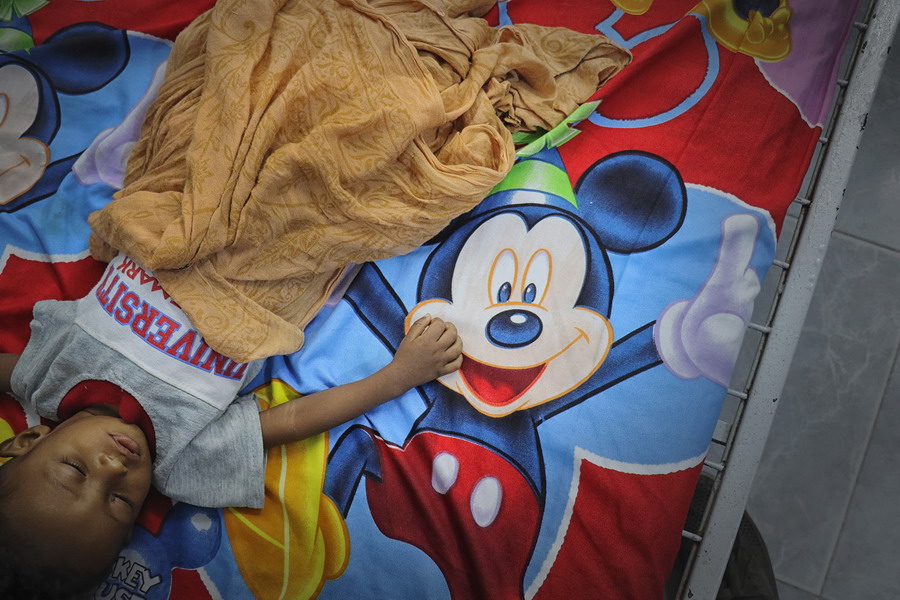
27 April 2021 – Nearly 2.3 million children under the age of 5 in Yemen are projected to suffer from acute malnutrition in 2021, 400 000 of whom are expected to suffer from severe acute malnutrition and could die if they do not receive urgent treatment.
Three-month-old Naynoor is one of these children. Her mother brought her to a WHO-supported therapeutic feeding centre in Dhamar district; her little body frail and suffering from acute malnutrition. She has been receiving treatment in the centre for 12 days now. “She is feeling much better now. She is taking milk and medication regularly thanks to support from Italy. I am thankful her health has improved,” says Naynoor’s mother.
Vulnerable populations in hard-to-access areas are suffering in silence with little to no access to basic and essential health care services. Malnutrition perpetuates vulnerability and illness within families who already lack the necessary resources. In the midst of prolonged conflict and devastated infrastructure, some families will watch their malnourished children wither if no action is taken.
Little Hifthallah was brought to the same centre accompanied by his mother. Malnourished, he came in suffering from diarrhoea and vomiting. He has been receiving regular care and treatment in the centre for 3 days now. “My child is being cared for and treated at this centre for free,” says his mother.
In one of the least permissive operational environments possible for humanitarian interventions, with COVID-19 exacerbating the difficulites, WHO and Italy continue to fight for the lives of children in Yemen. Through expansion of the availability, access and quality of critical nutrition services for mothers and children provided at the targeted therapeutic feeding centres. Gender and child-friendly admission and discharge kits, water, sanitation and hygiene items, as well as meals to caregivers, are other essential supplies provided to families.
Thanks to the generous support of the Government of Italy through the Italian Agency for Development Cooperation;30 new centres were established and are currently functional, scaling up the total number of centres to 83. This represents 80% of the total number of functional centres in the country. In these centres, WHO has been saving the lives of children under 5 from severe acute malnutrition. Between 2019 and March 2020, 15 000 children were treated in WHO–supported therapeutic feeding centres. Death rates among patients with severe acute malnutrition with medical complications has decreased from 3.6% (since 2017) to 2.1% (as of May 2020).


